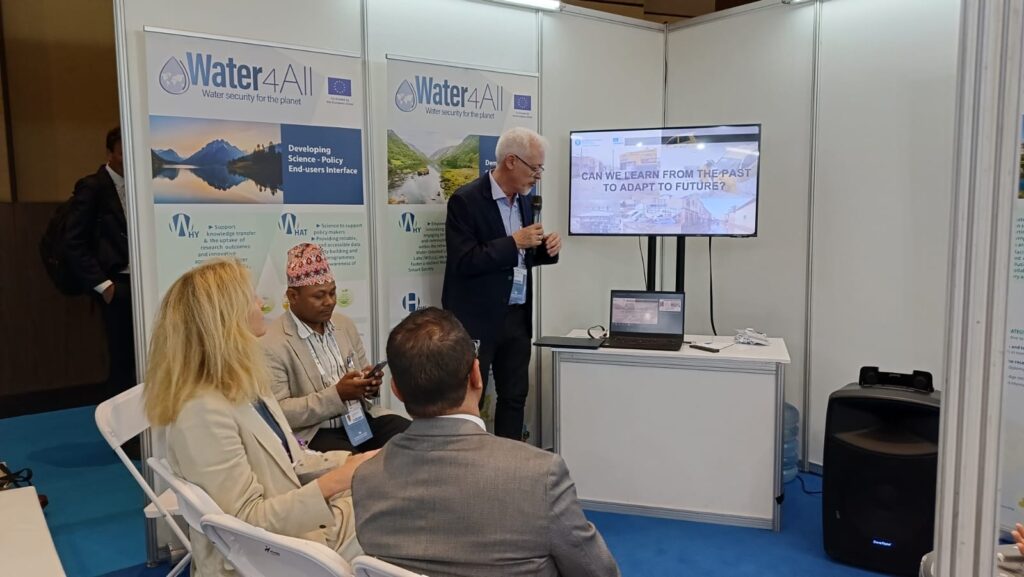and how ancestral knowledge can support climate adaptation measures
The SD-WISHEES consortium is a collaboration of researchers, water governance, and cultural heritage experts working with research funding organisations in Europe and beyond to explore innovation pathways for climate adaptation and the barriers to new investments in this field. Funded by the EC to support and develop widening strategies, SD-WISHEES hosted an event, 20th May at the Bali 10th World Water Forum, to address Hydro-climatic Extreme Events (WCCH Nexus) and their impacts on cultural heritage. This first event for SD-WISHEES served to highlight the impact of climate change for indigenous peoples. Amanda Loeffen, CEO of HR2W, co-convened this event with the coordination team, bringing aspects of the human rights-based approach.
Understanding the WCCH Nexus
Extreme events like floods and droughts not only destroy infrastructure but also deeply impact lives, livelihoods, and cultural heritage. This event aims to raise awareness of these impacts and highlight the urgent need for action. We are one-third into the research programme, focusing on innovation pathways, barriers for researchers, and creating an inclusive research platform.
Indigenous Peoples and Cultural Heritage at Risk
When we hear about some of the ancestral knowledge and techniques that are used by many indigenous peoples to conserve water, use rainwater harvesting, wetlands and provide efficient irrigation systems, there is a lot to learn about nature based solutions that could be used in larger scale to adapt to climate change and potentially mitigate some of the more extreme events. This event emphasises the severe impact of extreme events on indigenous peoples and their cultures. Indigenous communities, particularly in rural areas, are disproportionately affected, much of the indigenous culture is in danger of being lost.
Learning from Indigenous Leaders and Researchers
The event featured performances and stories from indigenous leaders and case studies from researchers, and was moderated by Amanda Loeffen from HR2W:
- Jessica Amadio from the SD-WISHEES Coordination Team, CNR, Italy, introduced the session.
- Eddy Moors, Rector at IHE Delft Institute for Water, NL, covered the impact of hydroclimatic events on cultural heritage and how ancestral knowledge supports climate adaptation.
- Tekaherha Logan Lazore, from the Mohawk Council of Akwesasne, Canada, discussed how erosionis affecting islands in Ontario and Quebec and shares her experience as an environmental field technician. She also performed a song to highlight the importance of water for her community.
- Prem Singh Tharu, Regional Programme Officer at Asia Indigenous Peoples Pact (AIPP), Nepal, talked about the Tharu Indigenous community’s challenges due to climate change. He showed how indigenous knowledge helped the community of Fattepur Banke, Nepal, after a flood destroyed and severely affected the families living in the village.
- Jordi Morato, Coordinator at UNESCO Chair on Sustainability, Barcelona, Spain, presented a case study on ancestral hydrotechnology in Latin America relevant to climate change adaptation.
- Ali Rhouma, Project Partner at SD-WISHEES, PRIMA, Spain, talked about some of the innovation pathways and nature-based solutions for climate adaptation and mitigation.








